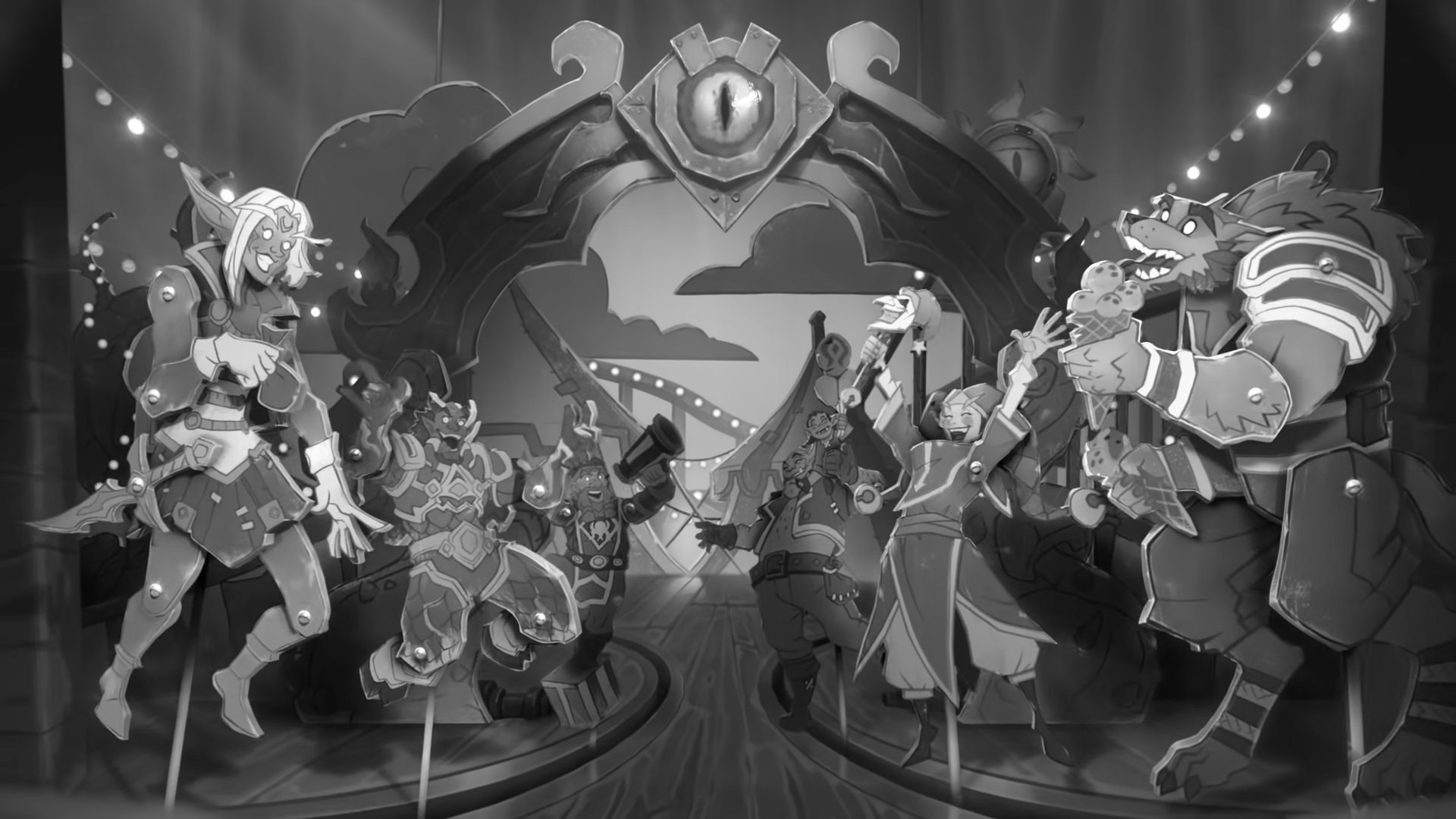They call themselves the “Forsen Boys,” or the “Forsen Army.” If you’re a women or minority streaming Hearthstone on Twitch, they appear as if out of nowhere, flooding your channel’s chat room with abuse.
“what the fuck is that???”
“thats shit its not a girl.”
“show TITS.”
For streamers like Katy Coe, the target of the above comments, it’s quickly obvious where the “army” is coming from.
Sebastian “Forsen” Fors is one of the top four Hearthstone streamers on Twitch. As many as 45,000 people tune into his channel everyday. And while many viewers focus on what’s happening in stream, there’s another spectacle taking place right next door.
“Are you a girl or a boy,” the trolls ask over and over again. “Jesus fucking christ your hideus.”
Twitch first broke into mainstream awareness last year, when Amazon purchased the streaming company for nearly $1 billion. If you’d never heard of the site before then, you likely came away knowing just one bullet point fact about Twitch: it’s a platform for streaming video games. There’s another side to the site that’s often forgotten about, however, one that’s arguably more important in forming Twitch’s cultural identity: Its buzzing and anarchic chat rooms.
Twitch chat is an integral part of the experience. It’s where the community lives. It’s a place for highly entertaining irreverence, a community of fans shouting to be heard, churning out memes and in-jokes with almost impossible-to-follow speed. It can make Twitch feel less like watching TV and more like watching sports in a bar.
Like any pseudonymous online community, however, Twitch chat also becomes a playground for trolls. Hover in the chat room of any popular stream, and it doesn’t take long to find racism, sexism, harassment, and just about any kind of hate speech you can imagine.
In a chat like Fors’, where 45,000 people compete for attention, the conversation moves at a blisteringly fast pace, with topics as diverse as the user base. But then the trolls show up.
They’re not trolling Fors, of course. Instead, they post links to other Twitch streamers, usually female, and launch raids, leaving abusive and harassing messages.
Fors’ channel is a particularly appealing destination for trolls. His moderation style can best be described as laissez-faire. Twitch does provide streamers tools for policing chat. You can, for instance, ban links to other Twitch channels outright, which essentially stop the trolls in their tracks. Fors has never implemented this option, however. In fact, he doesn’t operate any kind of moderation tools on his channel. The only things he won’t do or say himself are show nudity on stream, or say the n-word (both of which are banned by Twitch anyway).
Making matters worse for the targets of Forsen’s Army, they tend to have small followings. So when a platoon of trollish followers (usually anywhere from 50-100) from Fors’ channel invades, they can easily overwhelm the other channel’s chat. The messages range from simple spam or harmless trolling to outright racist, transphobic or misogynistic abuse. The links to other channels don’t always stay in the background, too. Fors, like a lot of Twitch streamers, makes money through donations, and encourages fans to donate by flashing a message on screen. And sometimes, his “Army” posts links to other streamer’s channels as messages for their donations, and as a result the links flash up on the video, where they’re seen by even more people.
You can see what one of these raids looks like from Coe’s chat logs, which she shared with the Daily Dot. On one raid on Jan. 16 she was targeted for about 20 minutes, during which she faced dozens of offensive and transphobic comments about her appearance and her gender. Coe is an obvious target for harassment, because she stands out from Twitch’s majority demographic—young, white men. She’s recently had to give up her career in programming and security due to Myalgic Encephalopathy, or ME, which causes chronic fatigue. And she’s been a target of harassment for much of her life. Coe also suffers from an estrogen deficiency, giving her an abnormally low voice. She had to move away from her native England to Norway 10 years ago to escape bullying over her voice. The Forsen Army naturally latches onto this too, pointing it out, over and over again
Twitch chat is an integral part of the experience.
“Are you a girl or a boy,” the trolls ask over and over again.
“Jesus fucking christ your hideus.”
“Does this problem with your voice affect your sexual intercourse?”
In another attack two days later, the abuse lasted about 15 minutes. “Is this the undetermined gender human being that Hornpub used to raid?” one person wrote (Hornpub is a moderator on Fors’ channel). One user named “tarulihs,” another of Fors’ moderators, offered to “bring some viewers” around a minute before the raid began, pointing to a common excuse offered by the Army: They’re really just helping out the targets of harassment by bringing them new followers. (Tarulihs declined to comment on this article.)
Coe’s lucky, to a certain extent. Thanks to her background in programming, she was able to write a script that filtered out a lot of the hate. Called “JarraxusBot,” after a popular in-game character with a penchant for despotism, the tool is more sophisticated than regular Twitch moderation bots, automatically filtering out most profane keywords and common attack phrases and deleting copy and pasted spam.
Coe didn’t just fight the harassment with computer code. She also took her story public, posting to Reddit on Jan. 20. At first, this only made things worse. As soon as her stream was online, users in Forsen’s chat, including another moderator, started posting links to her channel. There were 15 separate calls to raid Coe’s channel posted that day. Coe had to increase her protection even further, coding her bot to monitor the chat in Fors’ channel and automatically putting her channel in subscriber-only mode whenever ever a link to it was posted.
But in the end, going public seemed to pay off. Not long after, following discussions between Coe and the moderator tarulihs, Fors banned links to Coe’s channel in his chat—an important move, but one that has provided little comfort to others still suffering harassment at the hands of the Forsen Army. Indeed, while Coe’s experience is on the more extreme end of the attacks, she is by no means the only one being targeted. Every time Fors streams, people are posting links to other channels, and often reposted dozens of times over an evening. I saw at least a dozen separate brigades launched in the course of reporting this story.
“I would say that in most cases girls actually enjoy the viewer boost.” — Sebastian “Forsen” Fors
Finnish streamer Valinnan Vaikeus said she had endured abuse directed at her weight and her gender.
“These so called attacks towards me are ridiculous and proves that some people are as dumb as sheep to follow such ‘orders,'” Vaikeus told the Daily Dot. And she dismissed the idea that the increased viewership was in any way positive. “I don’t enjoy the viewer boosts because I stream only for those people who really want to see what I’m doing and want to chat with me. The streamer whose stream they came from should feel bad.”
Fors, it’s important to point out, has no direct involvement in the attacks. The laissez-faire attitude towards chat means he doesn’t just not moderate, he doesn’t get involved at all. And to a certain extent, that’s reasonable: The chat moves at such speed that policing it on a day-to-day level would be time extraordinarily consuming. Still, banning Twitch links would be a relatively simple way to address the problem. So why not?
While Fors told the Daily Dot he was fully aware of the practice, he said he had “no plans” to attempt to curb it.
“Of course I’m aware of it,” Fors said. “But I don’t really bother reading chat too much when I have a big amount of viewers. And I don’t really care whether or not they use the term ‘Forsen Boys’ while doing it. My Twitch chat is a community of it own, and I have no plans on changing the way my channel is moderated.
“In some cases girls dislike it. But I would say that in most cases girls actually enjoy the viewer boost.”
The only time Fors does step in is when users post links to streamers who are beneath Twitch’s age limit—13 years old. It’s an important exception to take, because it does happen. In one chat I saw, a Fors user wrote “I LIKE ME SOME 10 YEAR OLD BOYS” and linked to an underage boy’s channel. I asked moderators in the channel if that user had been banned, but didn’t hear back.
Twitch does have explicit rules banning harassment, and invites victims to submit what it calls “grief reports” on the incidents.
“Our rules of conduct explicitly state no ‘racism, sexism, homophobia, or other hate speech,'” Twitch said when contacted by the Daily Dot, “so if members of the community are caught engaging in this type of behavior, we act upon it.”
But it’s not clear how useful these reports are. Coe told the Daily Dot that she had submitted two separate reports following the attacks on her channel, but had yet to receive any reply.
Twitch chat also becomes a playground for trolls.
What detection methods are in place to catch users who break the rules? Twitch declined to comment on this question. A representative did point to the measures users can take to control their channels, including link banning and something called slow mode, which puts a limit on the number of messages a user can send in a certain time interval. But it seems that if channels do not take steps to moderate their communities, help from Twitch is often not immediately forthcoming.
When it comes to online harassment, Twitch may want to take a lesson from its neighbors in San Francisco: Twitter. The social network has long been one of the best platforms for for all kinds of awful abuse and harassment. Take the example of Robin Williams’ daughter Zelda who quit after a torrent of abuse she received following her father’s suicide. Then there’s the rape victim of British soccer player Ched Evans, who has had to move several times after her private information was posted online.
Those are just two examples of many well-publicized instances of online harassment. As a result, Twitter has been the target of withering criticism from both its own users and major media organizations. Last week, CEO Dick Costelo admitted in a staff memo that Twitter “sucked” at dealing with the abuse being broadcast on their platform, and that it was working on remedying the situation.
Coe was strong and smart enough to stand up to the mob and chase them off. But what happens when it’s the next person?
It’s not too late for Twitch to help make sure there isn’t a next person.
Correction 1:30pm CT 1/11: The Daily Dot asked moderators in Fors’ chat room whether the link to the underage streamer’s channel had been banned, not an individual moderator. We regret the error.
Illustration by Jason Reed












Published: Feb 11, 2015 02:50 am